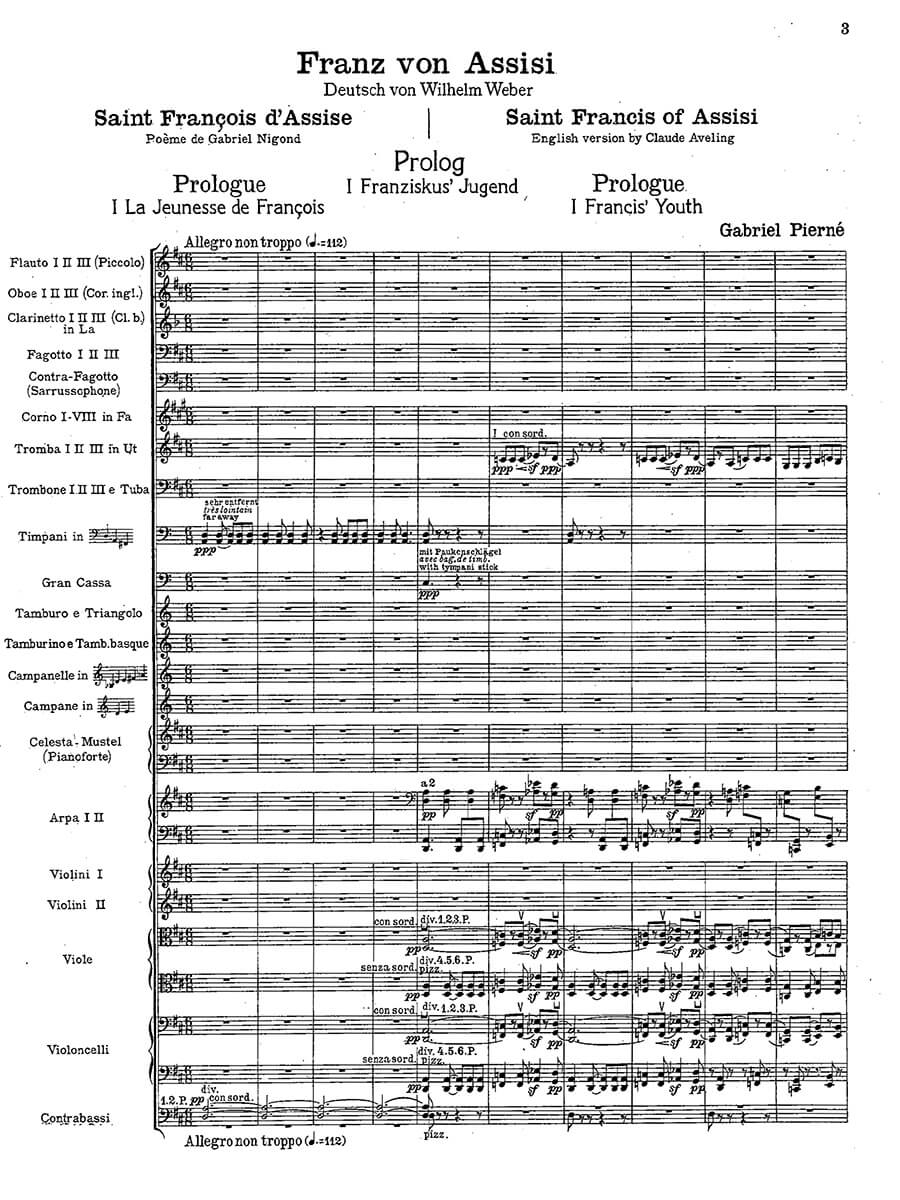St. François d’Assise, oratorio (full score with German, French and English libretto)
Pierné, Gabriel
67,00 €
Gabriel Pierné – St. François d’Assise, (Fioretti) Oratorio en un prologue et deux parties. Poème de Gabriel Nigond (1911-12)
(b. 16 August 1863, Metz – d. 17 July 1937, Ploujean near Morlaix)
Saint Francis of Assisi. (Little Flowers) Oratorio in a Prologue and two Parts. Poem by Gabriel Nigond; English version by Claude Aveling
Preface
The son of a singing teacher and a piano teacheress at the Metz Conservatoire, Gabriel Pierné was raised from early childhood to be a musician. In 1870 the Pierné family moved to Paris, where Gabriel was soon accepted as a young student at the Conservatoire, winning four prizes (for piano, harmony, counterpoint and fugue, organ) in 1879-82. In 1882 he was also awarded the Prix de Rome. Like Vincent d’Indy, Ernest Chausson, Henri Duparc, Maurice Emmanuel, Guillaume Lekeu, Charles Tournemire, Louis Vierne, and others, he was among the students and admirers of César Franck, whom he succeeded as titular organist at Ste Clotilde after Franck’s death in 1890-98. In 1903, Pierné became assistant conductor of the Colonne Orchestra, where he served a schief conductor until 1934 after the death of Édouard Colonne in 1910. He also served as the university’s commissioner for teaching choral singing in Paris schools and conducted the first performances of Serge Diaghilev’s Ballet russes in Paris. As a conductor, Pierné’s mastery and humility in selfless service to music was legendary.
Pierné wrote many works for orchestra, chamber music, piano, organ, as well as lieder and choral works. In addition to a large number of operas, he also composed five oratorios, some of which were great successes: the Gospel play “La Samaritaine” after Edmond Rostand (1897); “La nuit de Noël de 1870” (1896); “La Croisade des enfants” after the poem of the same name by Marcel Schwob (1904), based on a historical event, according to the view of the time, and by far his most performed vocal work (it was performed not only throughout Europe as far away as Russia (200 performances in Germany alone), but also in North America, Australia and South Africa); the mystery “Les Enfants à Betléem” (1907); and the fioretti “Saint François d’Assise” (1912), herewith presented for the first time in study score. …
Read full preface > HERE
| Score No. | 4433 |
|---|---|
| Edition | Repertoire Explorer |
| Genre | Choir/Voice & Orchestra |
| Size | |
| Printing | Reprint |
| Pages | 346 |
